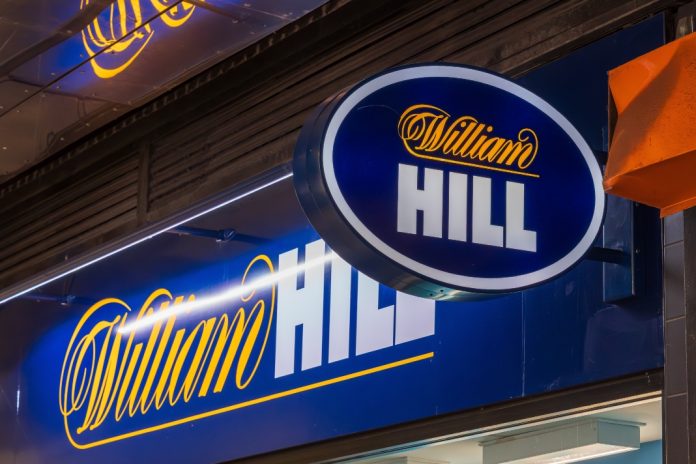William Hill has been the subject of a complaint made to the Advertising Standards Authority (ASA) for a promotional voucher that was deemed to possibly encourage irresponsible play.
According to the ASA’s report, the voucher in question was received by a customer from a slot machine in a William Hill betting shop on 3 April 2025 at 11:51am. The voucher said the following:
“You’ve won a £5 cash match on any game!”
“Redeemable between 03/04/2025 – 03/04/2025 from 05:20 PM – 11:59 PM in any venue”.
A complaint to the ASA challenged whether the timeframe between the voucher being received and when it could be redeemed was a breach of the CAP code since it was “socially undesirable by encouraging irresponsible use”.
William Hill argued that the voucher didn’t breach the code or encourage socially undesirable or irresponsible behaviour. However, these claims have been dismissed by the ASA, with the complaint upheld and the operator told that the ad must not appear again in its current form and that future promotions must not encourage irresponsible behaviour.
William Hill: promotion didn’t encourage ‘excessive staking’
The voucher was issued to customers who deposit £50 or more on an eligible gaming machine before 5:20pm on the day that the promotion is issued and valid. This figure is the total value placed in-store, including a customer’s original cash-in and subsequent winnings played again.
According to the ASA, William Hill provided evidence that the average cash-in in relation to the three-day promotion was “below the average spend for April and May 2025”. As a result, the operator didn’t believe the amount that must be spent “to qualify for the promotion was substantial, nor that the promotion encouraged excessive staking”.
Since the voucher was £5 and could be spent on any game, William Hill argued that the promotion was “a low-value, one-off reward” and didn’t “involve any progressive elements, wagering multipliers, or additional conditions beyond what was initially displayed”.
Therefore, the operator said it was “not part of a broader incentive structure nor designed to drive repeated play”, adding that the promotion’s terms, including the staking threshold and the redemption timeframe, were “clearly and fully” communicated to customers, and they were “given sufficient information to make an informed decision before participating”.
Key qualifying conditions were also “displayed on digital promotional screens in the shop and the voucher reiterated those eligibility conditions”, with the voucher serving as a “confirmation of eligibility which reminded consumers of the pre-disclosed redemption timeframe”.
In addition, William Hill stated that redemption of the vouchers was entirely optional, adding that customers could freely choose not to redeem the voucher or return later the same day. Data was also supplied showing that most customers who qualified for the voucher don’t redeem it, which they believed showed customers knew redemption was optional.
The operator added that the £5 value of the voucher was ‘modest’ and therefore “they did not believe that at any stage the promotion encouraged a customer to remain on the premises to engage in excessive consumption, nor encouraged irresponsible use”.
While the promotion began at a later time than when the voucher was awarded, William Hill stated that it “did not encourage participants to remain on the premises and therefore it did not create any time-sensitive pressure to continue playing”, adding that very few customers redeemed the voucher within two hours, with most waiting three hours.
As a result, the operator believes that the extended time between the voucher being issued and redeemed “strongly indicated” that most customers left and returned later to redeem the voucher, undermining the suggestion that the redemption window “pressured customers to remain in-shop or extend their play”.
William Hill also noted that all staff in their shops have received training to identify signs of gambling-related harm, gaming machines provide prompts to remind customers of their time and money spent and allow customers to set limits, so any concerns regarding customer behaviour would have been met with a response in line with their polices.
ASA upholds the complaint
While acknowledging the points William Hill made, the ASA has upheld the complaint against the operator because the timeframe of when the voucher is issued and redeemable “created an incentive for repeated play within a short period, including visiting the betting shop twice in a single day, increasing the risk of consumers gambling more than they otherwise would”.
The authority noted that since the redemption period was at a later point in the day, participants could only benefit if they returned to the premises or stayed until the start time of the promotion, and that those eligible for the voucher may have already placed several bets earlier the same day.
“We thus considered that linking the reward to a same-day timeframe, particularly at a limited period later on the day, incentivised behaviours that could encourage irresponsible use,” the ASA stated.
“For those reasons, we concluded that the promotion encouraged irresponsible use and breached the Code”, particularly CAP Code (Edition 12) rule 8.5 (Protection of consumers, safety and suitability).
The ASA has told William Hill that the advert must not appear again in the form complained of and that future promotions must not encourage irresponsible behaviour.














